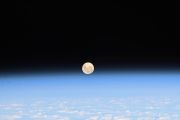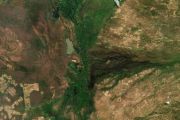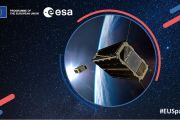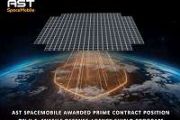
Copernical Team
Vega-C: watch the launch
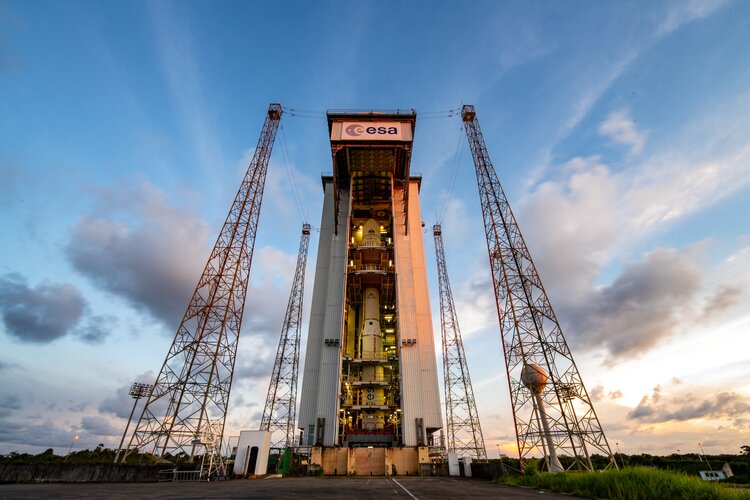
ESA’s new Vega-C rocket is nearly ready for its 13 July inaugural flight. You can follow live on ESA Web TV - EN or IT
Flight VV21 will now lift off as soon as 14:13 CEST, pending suitable conditions for launch.
Broadcast is now live - EN or IT
14:13 CEST/13:13 BST/12:13 UTC/09:13 Kourou – liftoff
Undead planets: the unusual conditions of the first exoplanet detection
 The first ever exoplanets were discovered 30 years ago around a rapidly rotating star, called a pulsar. Now, astronomers have revealed that these planets may be incredibly rare. The new work will be presented tomorrow (Tuesday 12 July) at the National Astronomy Meeting (NAM 2022) by Iuliana Ni?u, a PhD student at the University of Manchester.
The processes that cause planets to form, and s
The first ever exoplanets were discovered 30 years ago around a rapidly rotating star, called a pulsar. Now, astronomers have revealed that these planets may be incredibly rare. The new work will be presented tomorrow (Tuesday 12 July) at the National Astronomy Meeting (NAM 2022) by Iuliana Ni?u, a PhD student at the University of Manchester.
The processes that cause planets to form, and s NASA releases first full set of images from $10B James Webb Space Telescope
 NASA on Tuesday unveiled its first full collection of images taken by the James Webb Space Telescope - showcasing the type photos that engineers had in mind when they first conceived of the telescope in the 1990s.
The space agency unveiled the collection of five images from the $10 billion telescope during an event late Tuesday morning at the Goddard Space Flight Center in Greenbelt, M
NASA on Tuesday unveiled its first full collection of images taken by the James Webb Space Telescope - showcasing the type photos that engineers had in mind when they first conceived of the telescope in the 1990s.
The space agency unveiled the collection of five images from the $10 billion telescope during an event late Tuesday morning at the Goddard Space Flight Center in Greenbelt, M Cosmic cliffs and dancing galaxies: Webb begins era of discovery
 The cosmic cliffs of a stellar nursery and a quintet of galaxies bound in a celestial dance: NASA released the next wave of images from the James Webb Space Telescope Tuesday, heralding a new era of astronomy.
"Every image is a new discovery," said NASA administrator Bill Nelson. "Each will give humanity a view of the universe that we've never seen before."
Released one by one starting f
The cosmic cliffs of a stellar nursery and a quintet of galaxies bound in a celestial dance: NASA released the next wave of images from the James Webb Space Telescope Tuesday, heralding a new era of astronomy.
"Every image is a new discovery," said NASA administrator Bill Nelson. "Each will give humanity a view of the universe that we've never seen before."
Released one by one starting f Hypersonics: Developing and defending against missiles far faster than sound
 The challenges of the hypersonic era in military operations are immense. But so are the abilities of innovators who work together to solve them.
That was the message when Wes Kremer, president of Raytheon Missiles and Defense, a Raytheon Technologies business, spoke to investors about how teams are working across the company to solve the myriad science and engineering problems that come wi
The challenges of the hypersonic era in military operations are immense. But so are the abilities of innovators who work together to solve them.
That was the message when Wes Kremer, president of Raytheon Missiles and Defense, a Raytheon Technologies business, spoke to investors about how teams are working across the company to solve the myriad science and engineering problems that come wi What to know about NASA's $10B James Webb Space Telescope
 NASA's $10 billion James Webb Space Telescope has sent its first batch of images from space, providing a view of space farther from Earth than ever seen.
The images, released July 12, show infrared images from deep in the universe.
Here's a closer look at the history-making telescope, the largest and most powerful ever launched into space. This illustration depicts the telescope
NASA's $10 billion James Webb Space Telescope has sent its first batch of images from space, providing a view of space farther from Earth than ever seen.
The images, released July 12, show infrared images from deep in the universe.
Here's a closer look at the history-making telescope, the largest and most powerful ever launched into space. This illustration depicts the telescope First encounter between the Ariane 6 central core and launch pad for combined tests
 The Ariane 6 central core (composed of the core stage and upper stage), assembled on 23 June, left the Launcher Assembly Building for the first time, en route to its new launch pad, which was built under the supervision of CNES, the French space agency, at Europe's Spaceport in French Guiana. This decisive and keenly awaited step was carried out by ESA and executed by an integrated ESA-ArianeGro
The Ariane 6 central core (composed of the core stage and upper stage), assembled on 23 June, left the Launcher Assembly Building for the first time, en route to its new launch pad, which was built under the supervision of CNES, the French space agency, at Europe's Spaceport in French Guiana. This decisive and keenly awaited step was carried out by ESA and executed by an integrated ESA-ArianeGro Maiden Flight of Vega-C: Top of new European rocket from Beyond Gravity
 Beyond Gravity (formerly RUAG Space) delivered the payload fairing, the top of the new medium-lift European rocket Vega-C, which will launch tomorrow. Beyond Gravity also produced the launcher computer and the payload adapter system.
Tomorrow, Wednesday, 13 July, the new medium-lift European Vega-C rocket is scheduled to lift-off from the European spaceport in Kourou for its inaugural flig
Beyond Gravity (formerly RUAG Space) delivered the payload fairing, the top of the new medium-lift European rocket Vega-C, which will launch tomorrow. Beyond Gravity also produced the launcher computer and the payload adapter system.
Tomorrow, Wednesday, 13 July, the new medium-lift European Vega-C rocket is scheduled to lift-off from the European spaceport in Kourou for its inaugural flig Perseverance takes first core from the Delta
 Perseverance has taken its first sample from the Jezero delta!
Since arriving at the delta, the rover has been observing and abrading different rocks to inform whether they are good candidate for our first core sample in this area. The first few rocks that were considered either fractured too easily or had surfaces that were too rough to safely place the drill. The team searched for a rock
Perseverance has taken its first sample from the Jezero delta!
Since arriving at the delta, the rover has been observing and abrading different rocks to inform whether they are good candidate for our first core sample in this area. The first few rocks that were considered either fractured too easily or had surfaces that were too rough to safely place the drill. The team searched for a rock Machine learning 'phones home' for famous Martian rock
 New Curtin-led research has pinpointed the exact home of the oldest and most famous Martian meteorite for the first time ever, offering critical geological clues about the earliest origins of Mars.
Using a multidisciplinary approach involving a machine learning algorithm, the new research - published in Nature Communications - identified the particular crater on Mars that ejected the so-ca
New Curtin-led research has pinpointed the exact home of the oldest and most famous Martian meteorite for the first time ever, offering critical geological clues about the earliest origins of Mars.
Using a multidisciplinary approach involving a machine learning algorithm, the new research - published in Nature Communications - identified the particular crater on Mars that ejected the so-ca 




